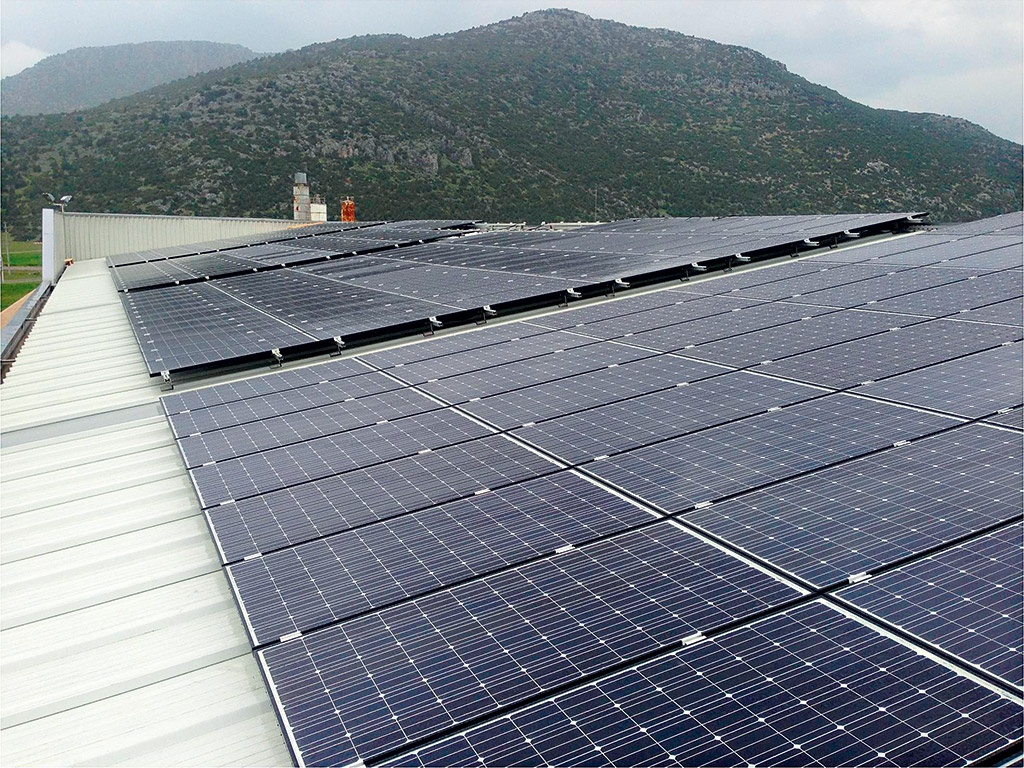Panasonic’s solar panels boost efficiencies of multiple businesses
Panasonic’s solar panels offer the ideal solution to businesses looking to cut back on energy costs and become more sustainable

Panasonic solar panels installed on the roof of Mercan Mermer’s plant in Burdur, southern Turkey
As businesses around the world have realised the importance of tightening the purse strings, the need to conserve energy has become more apparent. Rising energy prices and higher corporate tax rates have contributed to an environment where businesses have to look at alternative ways in which they can power their operations.
Many of the world’s leading electronics firms have invested heavily in solar power technology. One such firm is Panasonic: building on nearly 40 years of experience in photovoltaics, the company is heavily pushing towards green, sustainable energy creation for both consumers and energy-conscious businesses.
[Panasonic] is heavily pushing towards green, sustainable energy creation for both consumers and energy-conscious businesses
Panasonic’s HIT is a high-efficiency solar module that offers higher yield than standard modules. Backed by decades of expertise, industry certificates and a claim rate of only 0.0043 percent (among all modules sold in Europe), the company is providing a product ideally suited as a long-term investment.
Choosing between either self-consumption, where the energy generated by the solar panels on the roof is used on the spot to power the business underneath, and the ‘feed in’ process, where the energy generated by the panels can be sold into the electrical grid, Panasonic customers can use free solar power to provide their business with an extra source of income.
Self-consumption
Panasonic modules successfully transformed the roof of a stone-making business in southern Turkey into a hub of solar energy generation. The firm, Mercan Mermer, last year installed a vast 500kWp photovoltaic plant on the roof of its plant in Burdur. The roof has been equipped with 2,120 of Panasonic’s HIT N235 solar modules, commissioned to reduce operating costs and installed by specialist firm Seiso Solar. The scheme represents the largest on-roof solar project in Turkey, as well as the most efficient of its nature.
Part of the reason for choosing to install the panels was new regulations in Turkey that allow unlicensed power generation of up to 1MW. As a result, Mercan Mermer benefits from a steady supply of free energy, while also enjoying the capacity to put excess generated power back into the grid and earn €0.10/kwh.
Feed in
Swiss firm Truninger has combined entrepreneurial forward-thinking with sound economic sense. Truninger is the leading European provider of lifting magnet technology, with 100 percent in-house production.
When renovating the roof of the firm’s building, owner Dr Rolf Truninger decided to make it as efficient and sustainable as possible. Triple-glazed skylights and high-quality thermal insulation were installed at a considerable cost. So the company could claw back some of this investment, Truninger decided to install Panasonic’s HIT solar system on the new roof. The 936 modules now generate an average 230 kWh pa, which are remunerated at 30.8 Rappen/kWh (approx. £0.2). The feed-in tariff will mean that, in the long term, Truninger’s investment in the new setup will pay for itself.
Dr Truninger says the technology has been so successful there are plans for expanding it: “The higher efficiency allows for planning larger installations on a given area, meaning we can install more kW per project, while installation and operating costs stay fixed.”
It is clear businesses across the world would happily cut back on their energy consumption, and the sort of innovation offered by Panasonic’s HIT modules is particularly attractive. Providing greater yields for the space they use, the modules are far more efficient than many alternative systems, while also ensuring a long-term and reliable solution to businesses’ energy needs.













